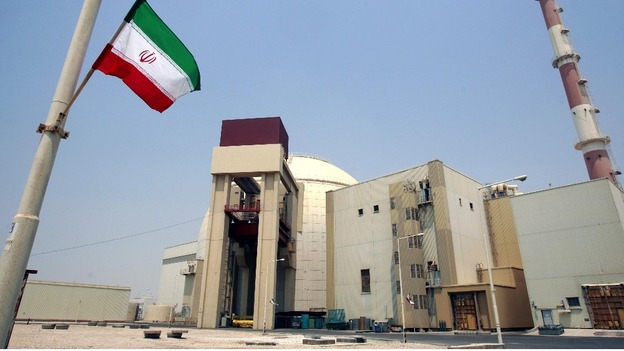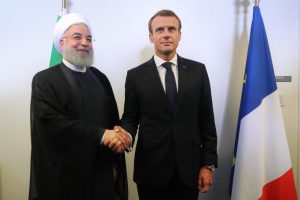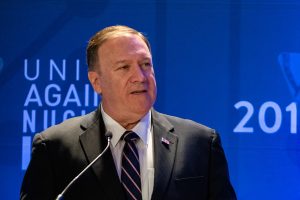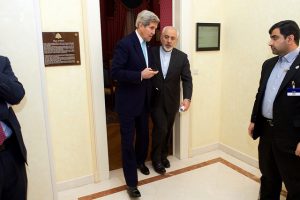by Eli Clifton*
The Wall Street Journal’s opinion pages have long served as a welcoming home to pundits toeing a hawkish line on Iran, Iraq and a laundry list of foreign policy challenges facing the United States. Tuesday, the Journal’s editorial board exclusively published details of a report provided by the Mujahedin-e Khalq (MEK), an exiled Iranian opposition group that until less than two years ago was designated a terrorist group in the United States and Canada.
Noticeably, the WSJ did not claim to have verified the MEK’s allegations that Tehran has continued to pursue nuclear weaponization research.
Even while uncritically reporting on the allegations, the article contained one major factual error. It read:
…having ceded a right to enrich and permitted the Islamic Republic to develop an advanced enrichment capability, the West is now left with preventing weaponization as the final barrier against a nuclear-capable Iran…
In fact, no administration or international negotiating body has “ceded” Iran the “right to enrich.” Iran has enriched uranium for the better part of the last decade despite sanctions from the past two administrations and demands that they cease enrichment. Even in the recent flurry of diplomacy between the P5+1 and Iran, no agreement has been made public and nothing has been formally conceded. (A November accord accepted de-facto enrichment while limiting Iran’s enrichment from 20 percent down to 5 percent.)
But perhaps more surprisingly, the WSJ editorial board apparently felt no compunction to inform readers about the source of this “plausible new report.” This, despite the fact that the Journal’s editorial team even includes one outspoken critic of the MEK, Sohrab Ahmari, an editorial page writer based in Europe.
In a 2011 Radio Free Europe column, Ahmari characterized the MEK as “a mostly irrelevant group as ideologically coherent as Lyndon Larouche’s cult and just as ineffective.” Later that same year, Ahmari, writing in Tablet, warned that the MEK was an “Islamo-Marxist cult.” Many critics have pointed to the group’s cult-like features, though over the last the few decades the MEK shed its Islamo-Marxist roots—a past many adherents today deny entirely.
On Tuesday and Wednesday, Ahmari, along with a small group of neoconservative pundits, promoted the article on Twitter but Ahmari, even while defending the MEK report, admitted the source was “problematic” in a tweet directed at me.
.@Ali_Gharib @EliClifton Because problematic sources can never disclose important, useful and newsworthy info, right? #Natanz #Arak
— Sohrab Ahmari (@SohrabAhmari) May 27, 2014
Indeed, the MEK has proven an unreliable source in the past.
In 2010, following an MEK claim to have discovered a secret nuclear site near the Iranian city of Qazvin, State Department spokesperson PJ Crowley told Fox News, “The MEK has made pronouncements about Iranian facilities in the past — some accurate, some not.”
While the Journal’s standards may be different for editorial content, a simple warning that the source was “problematic” and that much of the report was unverified, would be a reasonable expectation from one of the world’s most widely read newspapers.
“The MEK has a mixed record,” Daryl Kimball, executive director of the Arms Control Association, a Washington-based arms control advocacy group, told The Nation. “It’s curious that it occurred in the editorial page section and not the news section,” said Kimball. “The editors don’t appear to have tried to vet the information and they don’t stand behind it.”
The MEK may be onto something with its contention that Iran continued with its nuclear weapons work (the IAEA’s reporting about the “possible military dimensions” of Iran’s nuclear program only covers the period before 2003). But relying almost exclusively on the organization is, to borrow a word, problematic, and raises a question: Why did the MEK approach the ideologues of the Journal’s opinion pages instead of its newsroom staff with its exclusive report? Perhaps the paper’s veteran foreign affairs reporters, who have no doubt had many interactions with the MEK, are more skeptical of the group’s claim.
*This article was first published by The Nation on May 30 and was reprinted here with permission.
Copyright 2014, The Nation.






To C.I.N., Stripping away the veneer, if you rely on the W.S.J & other “western” organs of similar editorial views, or to be more explicit, pro Washington/Neocon hack P.R., as well as saying you’re a peace loving individual, then I have a bridge for sale to you, quite cheap too. I notice you avoided commenting on Netanyahoo’s wanting to attack Iran and bomb the crap out of the sites where the Nuclear Labs are located, the resulting deaths, along with the inevitable release of radiation and what that might do, both to the Iranian people as well as the surrounding Gulf States, nor Israels history of human rights abuses.
Concerning the use of innuendo, you refer to me & other commentators here as being lovers of the human rights abusers because we disagree with your views, yet offer nothing in the way of an alternative other than replacing the regime. But, who would replace them and what would be their politics? You use C.I.N. with no name to follow, I point out that most of the change regimes, turn out to be just as bad in the human rights arena, as the ones that are replaced, especially in repressive states. Such as vengeance on a deathly scale, being the number one priority to show the rest of the population who’s now in charge. So, commit yourself as to who would replace the present regime, or perhaps that’s out of the question?
Well since I live in the US and subscribe to the WSJ, I’m certainly going to rely on them Norman. Considering its the ninth most widely read newspaper on the planet and largest circulation US newspaper, yeah, I give their editorials weight. Which is probably why you seem hysterically freaked out about their editorial. I think the Journal was thoughtful, deliberative and insightful in their look at nuclear issues surrounding Iran and rightly raise skepticism as to whether or not Iran can be trusted to fulfill any treaty signed. You have given no proof or evidence of how Iran could be considered trustworthy when its history has been littered with subversive efforts to avoid international scrutiny on a wide range of issues beyond simply nuclear monitoring. So anyone reading the WSJ’s editorial should share in its concern and ask the hard questions you are striving to ignore and wash over.
To C.I.N., hysterically freaked out? That’s a good name caller that you resort to. The W.S.J. is also owned by the same man who owns Fox, along with other outlets. You don’t need say any more, these credentials say it all. Now everyone knows where you’re coming from, so there’s no need for you and me to continue this B & F.
I think a rigorous verification process is actually a good thing for Iran. Provided it is not used to identify targets for Israeli covert activities against nuclear scientists etc.
Of course it’s necessary. That’s what debate in a free and open society is about. Something that does not exist in Iran where free and open debate can land you in prison. You’ve never disputed the public hangings that occur in Iran. You’ve never disputed the blocking of social media and internet access in Iran. You’ve never disputed the arrest of gays, Christians and blogger and kids shooting YouTube videos in Iran. What kind of country are you defending exactly?